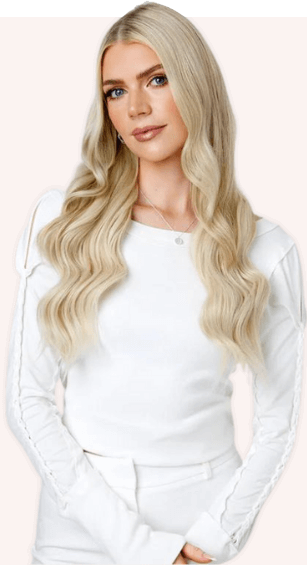Having a baby is both an intensely gratifying and challenging experience. There’s no denying that the early stages of motherhood are no walk in the park. However, these hard moments are interspersed with ones that feel impossibly gratifying. Your baby’s smile, the first tight grip on your pinky finger, and all the other tender moments bring unrivaled joy. We always want you, or new moms in general, to be able to focus on these special moments without having to worry about postpartum concerns like hair loss. So if you’re dealing with postpartum hair loss and find yourself aren’t sure why or how to cope, we’ve got everything you need to know to put your mind at ease.
I. What Is Postpartum Hair Loss?
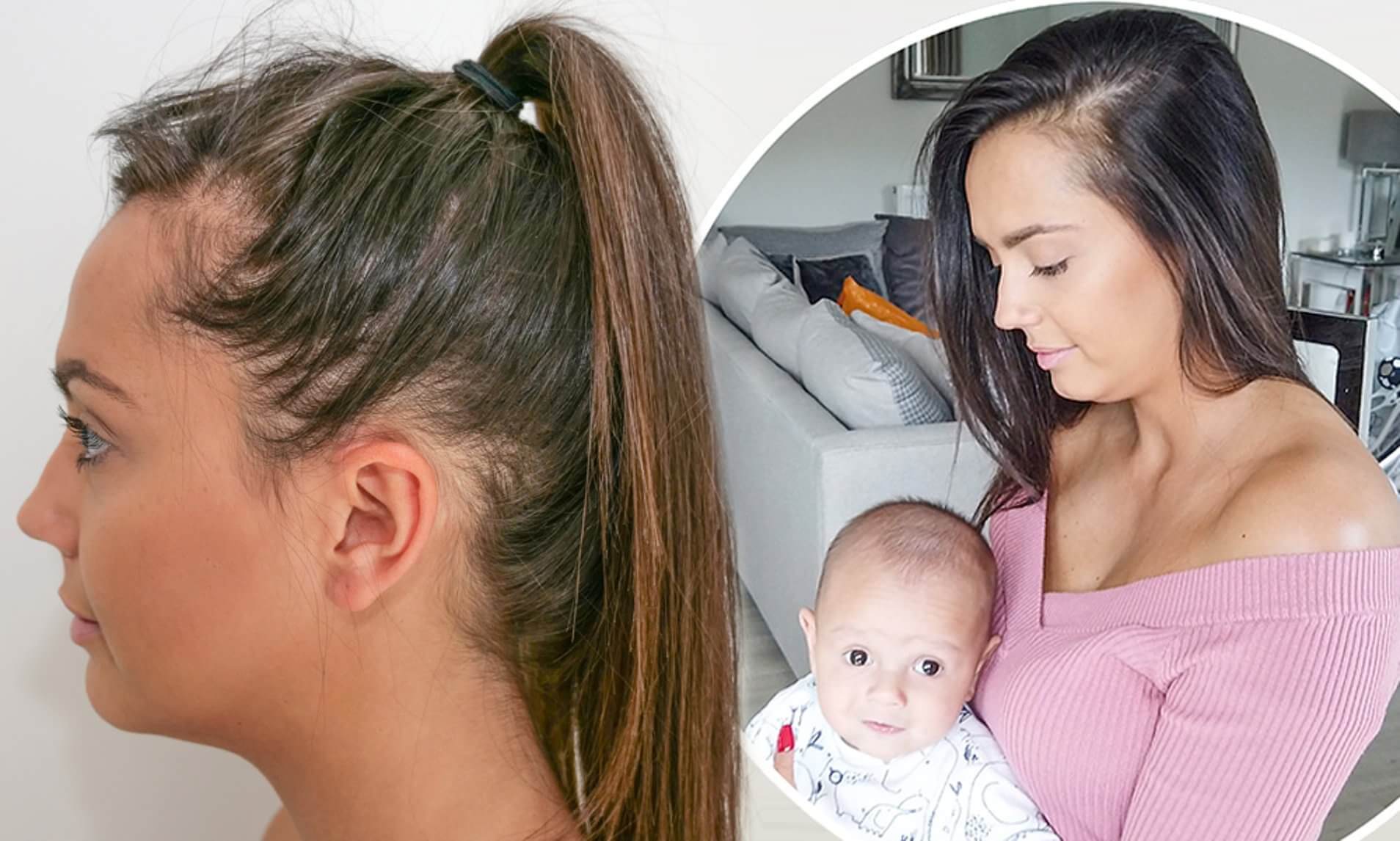
Many new moms see noticeable hair loss a few months after having a baby. “Postpartum hair loss” – a common condition that occurs about three months after childbirth. Whether you’ve noticed that you’re losing a little more hair than usual or that your hair is significantly thinning, rest assured that hair loss is common after childbirth. It’s a normal part of pregnancy and is only temporary.
II. Postpartum Hair Loss: Why It Happens?
So, you’re wondering what’s causing your postpartum hair loss. Well, it starts with pregnancy. You may have noticed your hair felt particularly thick and shiny during pregnancy. That’s because of hormonal fluctuations that naturally occur and estrogen, especially, has a significant impact on your hair cycles.
Your pregnancy hormones keep those hairs from falling out – leaving your hair looking as lush as a supermodel’s, or so thick that you can barely get a brush through it. In short, the spike in estrogen that occurs in the body during pregnancy, coupled with the increased blood flow, slows down your normal rate of hair fall. Hence, thicker hair results.
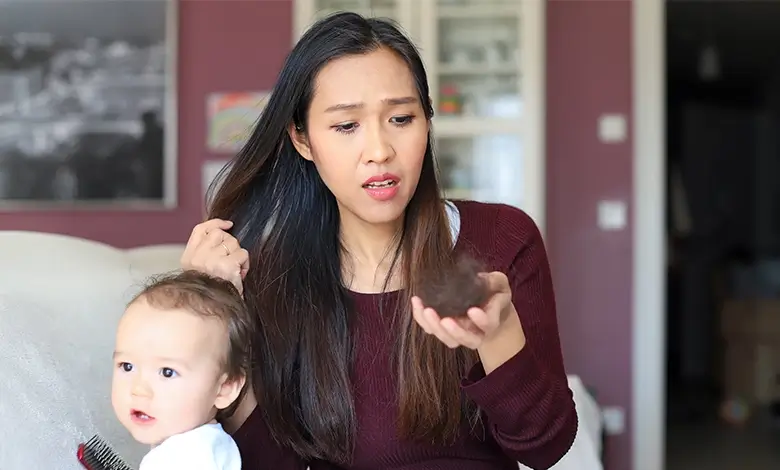
However, all good things must come to an end, once you deliver your baby, these hormone levels drop causing sudden and significant hair fall. You typically have 80,000 to 120,000 hair strands on your scalp. The average person loses about 100 hair strands a day, but not all at once, so you don’t notice them. However, in postpartum hair loss, you lose more than 100 hair strands daily.
III. When Does Postpartum Hair Loss Start & How Long Does Postpartum Hair Loss Last?
Postpartum hair loss typically begins 2 to 4 months after childbirth. Basically, if it feels like your hair is falling out in large chunks and you think you’re about to go bald sometime soon, don’t freak: You’re not going bald. This is just your body recalibrating, and your growth patterns will return to normal in due time. In most cases, this is completely normal, and your hair will naturally regrow within 6 months to a year.
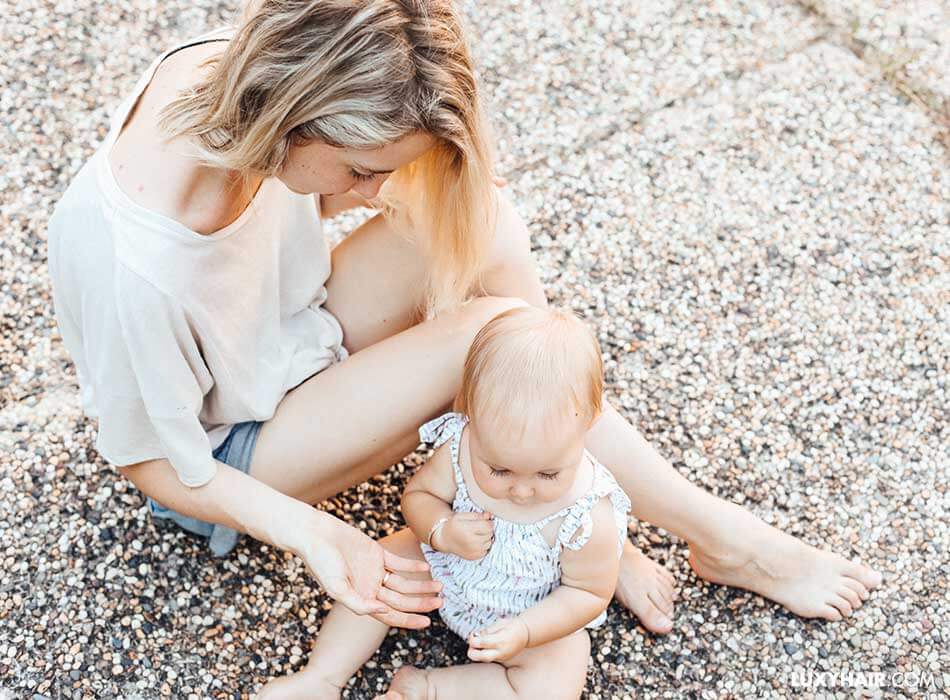
Postpartum hair loss experiences will differ from person to person. However, take comfort in knowing that by the time your baby is ready to blow out the candles on that first birthday cake, your hair loss will be finished, and your locks should be back to the way they were before pregnancy too.

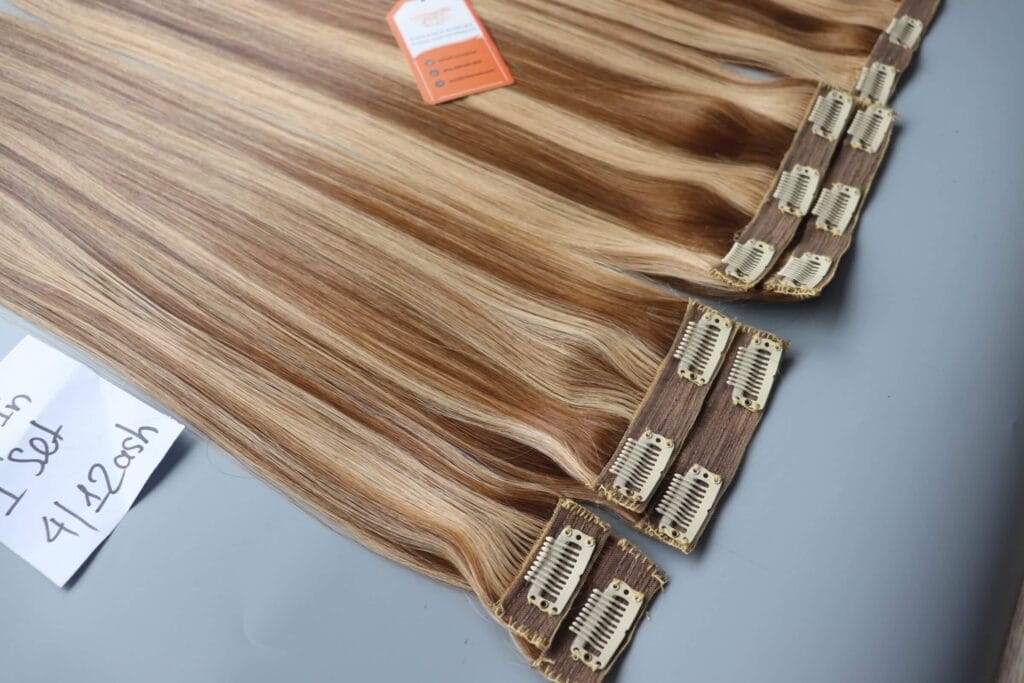
In the meantime, AZ Hair is here to provide you with easy hair solutions during this busy time in your life! Our Clip in hair extensions are a quick, easy way to achieve beautiful hair days in no time at all.
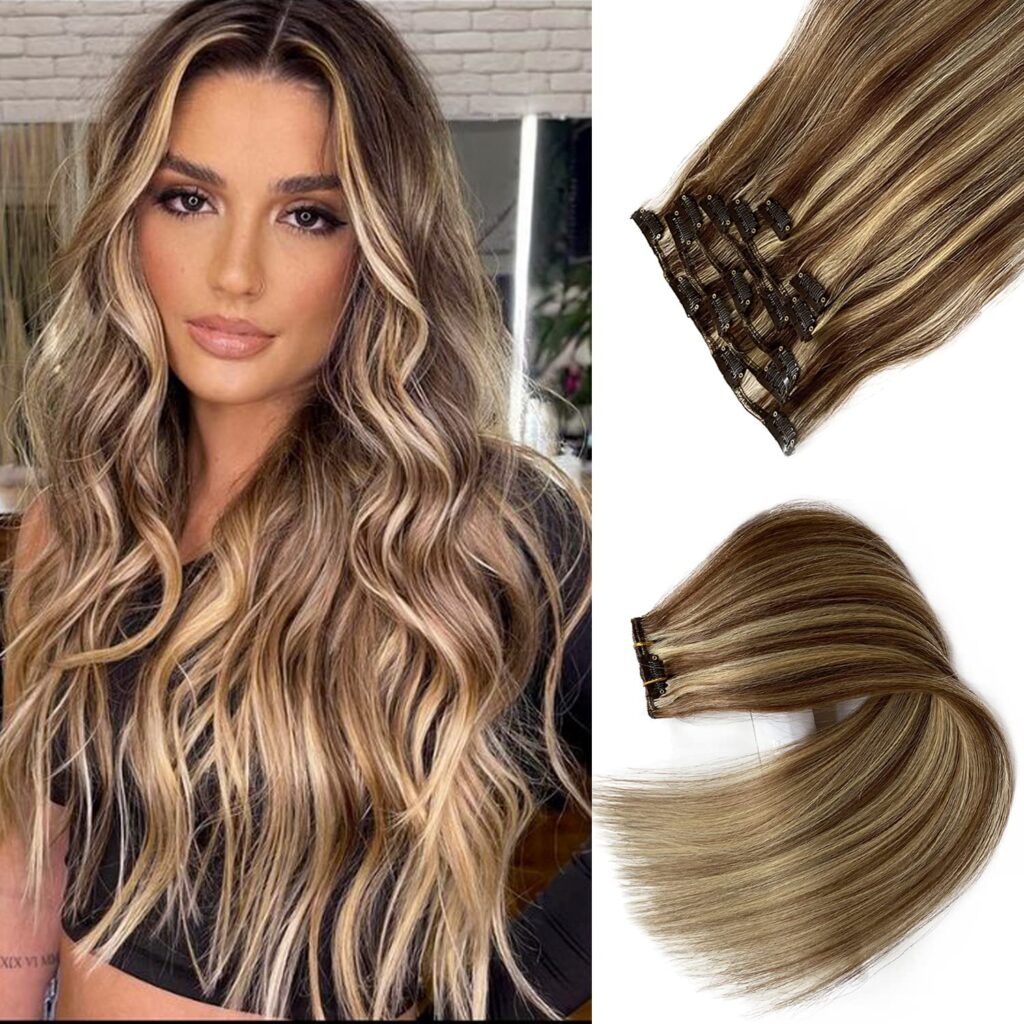
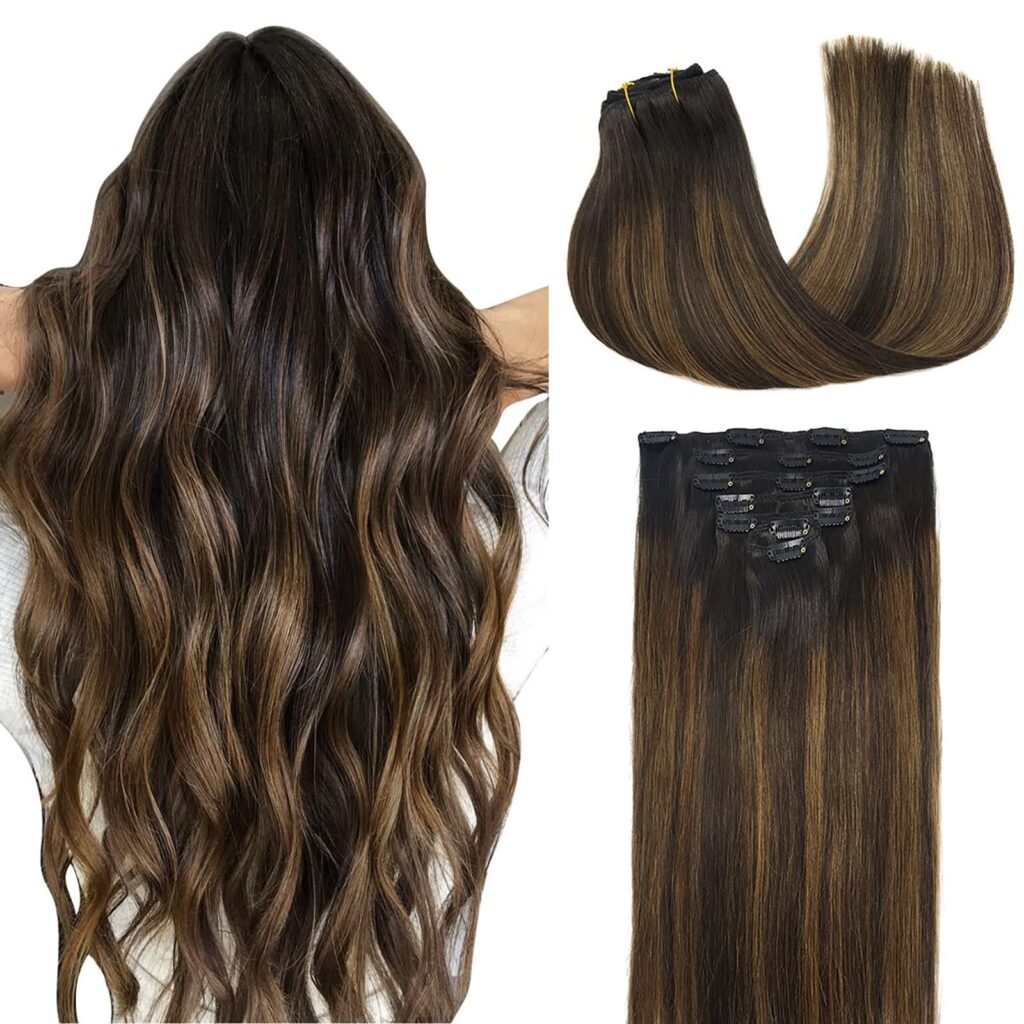
IV. How To Prevent Postpartum Hair Loss?
Experiencing hair fall after pregnancy is both natural and normal, there is no way to completely prevent it. However, there are a few ways you can keep your hair healthy and prevent damage while it is replenishing itself, as well as make your hair look fuller.
1. Get The Right Nutrients
It’s advisable to eat a balanced diet to help facilitate hair growth and help rebalance your hormones. Dark, leafy greens, fruit, healthy fats, and whole grains contain lots of essential vitamins such as iron, vitamin C, magnesium, and omega-3s. Some doctors may also suggest taking a multivitamin or continuing with your prenatal vitamin to help combat hair loss.
2. Turn Down The Heat
We recommend limiting heat styling to a minimum because it can cause unnecessary damage and remove natural volume. As well, the styling process can be pretty rough (think round brushes and lots of pulling) can accelerate the hair fall process, so it’s best to avoid it whenever possible. If you can’t live without your curling iron, we strongly advise using a heat protectant spray beforehand to minimize damage.
3. Reducing Stress
Of course, stress reduction is essential. This might mean taking long, relaxing baths, meditating, going for walks, and just taking the time to pamper yourself. Caring for a newborn can be a lot to manage so make sure to carve some time out of your schedule to give yourself some rest and relaxation.
4. Go Easy On Your Hair
To avoid excessive hair loss after pregnancy, be extra gentle. To avoid tangling, shampoo only when necessary (using volumizing shampoo and avoid any shampoo labeled “conditioning shampoo”), using a conditioner with formulated for fine hair (avoid conditioners labeled “intensive conditioners”) on the ends of your hair. You should also avoid chemically based treatments such as highlights and perms until the shedding stops. Furthermore, if your hair loss is excessive, consult your practitioner. Hair loss after pregnancy may be a sign of postpartum thyroiditis if it is accompanied by other symptoms.
V. Postpartum Hair Loss: FAQs
In most cases, postpartum hair loss is not permanent. If you are concerned about hair loss, you should speak with your doctor. AZ Hair will be there for you throughout your hair journey! You can use our hair extension sets to add fullness wherever you need it and achieve amazing hair days in a flash.
The postpartum experience will differ from person to person, just as every woman is unique! “Fourth Trimester” hair loss is unique to each individual; you can speak with your doctor for more information about your specific situation. Meanwhile, the AZ Hair team is here to assist you in finding a set that meets your needs as you adjust to the changes in your hair.
In most cases, postpartum hair loss is absolutely temporary and grows back without issue. If you’re ever unsure, you can check with your healthcare provider regarding your hair loss concerns.


 BEST SELLING PRODUCTS
BEST SELLING PRODUCTS Wig Hair
Wig Hair WHOLESALE PRICE
WHOLESALE PRICE Contact us
Contact us
